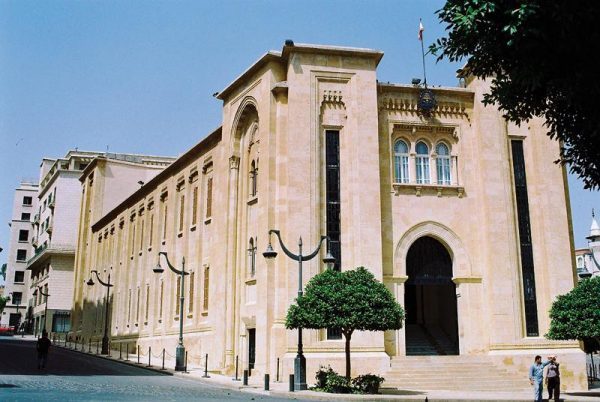
Lebanon’s largest Christian parties will take to the streets in an attempt to derail a legislative session dedicated to the extension of Parliament’s term for the third time after months-long negotiations failed to make headway over the adoption of a new parliamentary electoral system.
President Michel Aoun’s Free Patriotic Movement and the Lebanese Forces have called on their supporters to gear up for mass demonstrations after Speaker Nabih Berri scheduled a legislative session for Thursday to ratify an urgent bill that extends Parliament’s term until June 20, 2018.
Berri says the extension of Parliament’s tenure is essential to avoid vacuum in the legislative branch whose term expire on June 20, 2017.
Aoun, who had refused to sign the decree calling for parliamentary elections under the current law, described Tuesday the extension of the legislative body’s term as a “declaration of war,” according to FPM-affiliated TV station OTV.
Aoun insists that the extension of Parliament’s term should be coupled with the ratification of a new parliamentary electoral system and should be limited to only a few months to prepare for polls based on the new law.
In line with the constitution, the president can veto an urgent bill within five days of being ratified by Parliament. Under this scenario, an absolute majority or 65 MPs will have to pass the bill once again in Parliament before it becomes law.
To prevent parliament from re-endorsing the bill, the President can also resort to article 59 of the Constitution to adjourn the general assembly’s meeting for a month.
This will leave Parliament with only 12 days to pass the urgent bill in an ordinary session. If it fails to do so before May 31, the legislature will no longer be able to convene without the approval of the president and the prime minister, who according to article 33 of the constitution, have to authorize extraordinary sessions.
According to article 32 of the Constitution, “the Chamber shall meet each year in two ordinary sessions. The first session shall open on the first Tuesday following March 15 and shall continue its meetings until the end of May. The second session shall begin on the first Tuesday following October15…”
Concerns that the president might use his prerogatives to block the extension of Parliament’s term has prompted Berri to convene the general assembly as soon as Thursday to avoid vacuum in the legislative branch if rival political parties fail to reach an agreement over a new electoral law, parliamentary sources told Annahar.
Lebanon’s Constitution ensures continuity of the executive branch in the event of a presidential vacuum or the resignation of a Cabinet. Under the first scenario, the president’s powers are passed to the Cabinet while in the second case, a resigned Cabinet continues to function in caretaker mode pending the formation of a new one. However, the Constitution lacks clarity when it comes to the fate of the legislative branch in the event that parliament’s term expires and the government fails to organize elections.
The current law, which originally dates back to 1960, was amended and adopted in 2008 as part of a comprehensive deal struck in Doha. The Doha Accord ended an 18-month political feud that had exploded on May 7, 2008 into deadly sectarian fighting, between Shiite Hezbollah gunmen and Sunni pro-Future Movement supporters, threatening to plunge Lebanon into all-out chaos.
The government has already adjourned parliamentary elections twice, citing security concerns linked to the conflict in neighboring Syria. In 2013, lawmakers voted to extend parliament’s term by 17 months and then voted again in 2014 to extend their tenure an additional two years and seven months.
An Nahar

Leave a Reply
You must be logged in to post a comment.